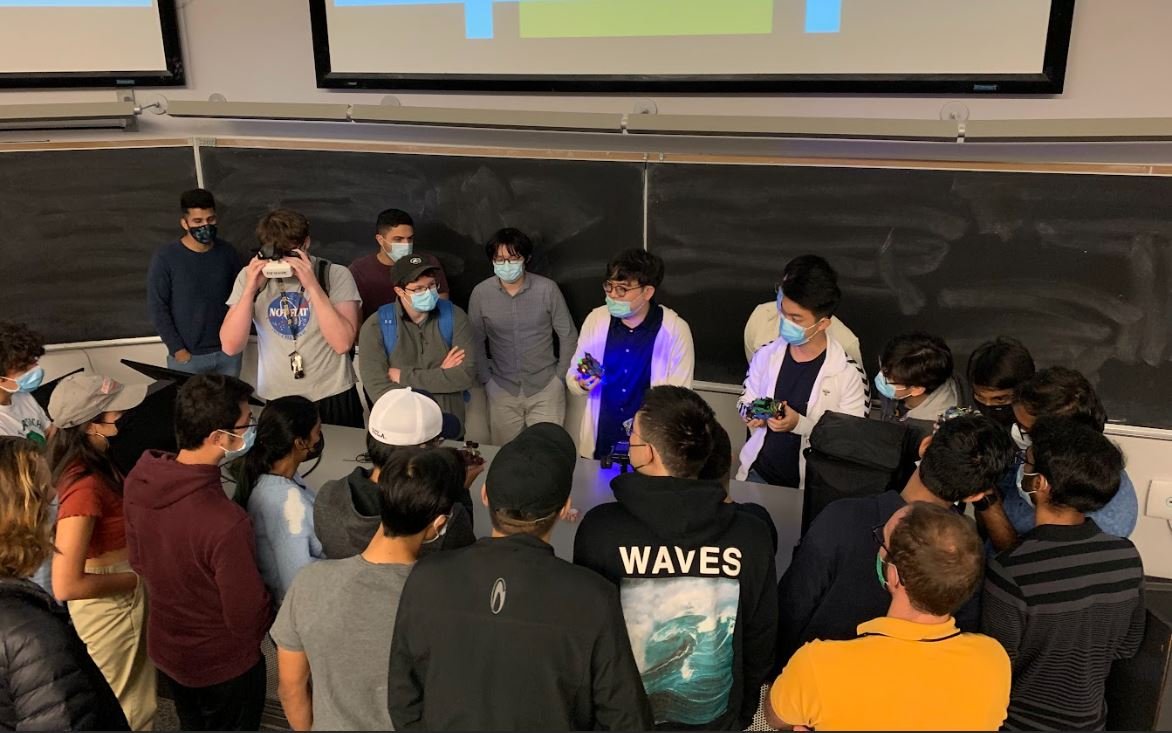Dr. Jesse Cha and the Integration of AI with the Automobile
Please introduce yourself, what’s your background?
I am Dr. Jesse Cha, a visiting assistant professor / Keck scholar at Pepperdine University in Malibu. I developed a miniature autonomous racing platform as a PhD student at UCLA under the tutelage of Dr. Dennis Hong, a world renown roboticist. I currently use the platform to conduct research in high performance AI racing and to teach students about applied data science and robotics for the Keck Data Science Institute at Pepperdine. For me, I always dreamed of managing my own racing team. My students and AI make it happen.
What is the most effective way to maximize AI’s potential in the automotive industry?
While I believe there are more qualified people directly working in the automotive industry who can answer this question, it is my belief that leveraging and pruning large datasets of humans driving is an effective way to maximize potential for artificial agents to learn how to drive. We already see this happening with automotive companies like Tesla with their autopilot system.
What is your take on the AI versus Humanity debate?
I think of AI as a powerful tool for humanity. We see AI being leveraged in various fields to assist humans, from medical imaging, natural language processing to even autonomous racing. Some argue that the tool we have created is too powerful, and to some degree I agree. It sounds cliche, but I believe with great power comes great responsibility.
Will the integration of AI into the automobile’s systems be a step closer to safe and autonomous vehicles?
I think this is a tricky question. Currently a lot of autonomous automobile systems utilize deep convolutional neural networks. This may be unsettling for people because unlike traditional automotive systems that adhere to explainable functional safety protocols, these systems operate much like a black box. At the same time, I will say that we have made a lot of progress towards making these AI algorithms explainable. We also have designated protocols and standards specific to autonomous systems. I think it is inevitable that AI becomes deeply integrated into automotive systems and it will only be a matter of time before they reach all the steps towards automotive safety. I would like to be cautiously optimistic on this one.
What is the end game for mixing AI and the automobile?
I think the end game is to make everyday transportation safer and faster. I spend roughly an hour driving to work everyday, and while I do enjoy driving, being stuck in traffic is no fun.
Are there any possible downsides to the AI in the automobile?
I think accountability in autonomous driving has the potential to be a huge downside. People who utilize autonomous systems should carry responsibilities according to the system's limitations. People who develop these systems should also do their due diligence in ensuring that the systems that they develop are safe. This does not always happen.
What are your plans with AI in regards to the automobile?
Garama ('가라마', Dark Horse) is the name of my 1:28 scale remote-controlled (RC) car made autonomous with data collected from Grant Matsushima, a world champion RC driver. Garama's AI utilizes vision transformers, the algorithmic components used to run the Large Language Models (LLMs) we see today in ChatGPT-4. I am currently working with PN Racing, a leading manufacturer in 1:28 scale remote control, to host an AI v.s. Human racing challenge.
Are there any leading brands using AI right now?
I think there are so many leading brands that utilize AI now that it would be easier to count brands that do not utilize AI. I urge my readers to check out the Tesla Exhibit at the Petersen Museum to see how a leading autonomous vehicle company utilizes AI.


